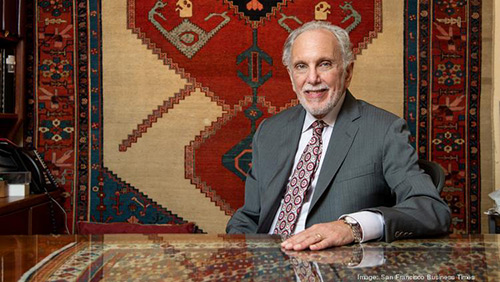Press Release
|
The art of the pivot: Rug store turns to innovation to survive pandemic
Jan David Winitz, who’s in the business of selling antique rugs for as much as half-a-million dollars, didn’t hit the panic button when the pandemic forced him to temporarily shut his main Oakland gallery in March 2020, his first extended closure in more than 40 years. Instead, he quickly pivoted. He and his team of about 40 rebuilt a high-touch business for e-commerce. He upgraded the company’s website, made more rugs available online and enhanced the ability to find the Claremont Rug Co. through web searches. Winitz also dusted off some ideas to build the business that had piled up over the years, but never pursued because he didn’t really need to. “I was taught from a young age that worry is counterproductive,” said Winitz, who said he learned many life lessons — and an appreciation for antique oriental rugs — at the knee of his grandmother, who emigrated to America from Ukraine. His father taught him chess, which has also served him well in running his company. “I approach business like a chess or Monopoly game. Business is just a sophisticated game,” Winitz said. “Since Covid, we’ve had to be much more innovative. And frankly, it’s been a lot of fun.” Prior to the pandemic, 80% of Claremont’s sales were through meeting clients in person at the gallery or in-home consultations, with the balance sold online. Now 80% of sales are handled online. Antique oriental rugs tend to sell from $7,000 to $250,000, but they can go as high as $500,000 at Claremont Rug. They are growing in popularity among those with money to spend. Claremont says it counts 75 clients from Forbes’ 400 richest Americans. Like many companies focused on home remodeling and decorating as more people worked from home, Claremont saw its sales rise more than 20% in 2020 over 2019. Sales are up almost 25% so far in 2021 compared to the same period a year ago. The company declined to provide revenue figures. Claremont’s clients don’t just buy antique rugs as floor coverings, but as collectibles too. Just as wine enthusiasts carefully select special vintages and display them in wine cellars, Winitz said some of his customers have rug cellars to display their collections. Winitz, 65, moved more cautiously in making other changes to the business during Covid, testing new marketing moves on a few clients before expanding them to more customers. That included introducing free shipping and returns so qualified U.S. customers could see the rugs in their homes before buying them. The program isn’t offered internationally due to the complexities of getting Claremont’s rugs back into the country. “We were a little scared about doing it because we thought there was potential for a great money loss. Shipping a rug is not like shipping a bag of granola. It’s expensive,” Winitz said. Each rug costs about $150 to ship one way, so it wouldn’t take very many returns to turn the offer into a money loser for the company. But “very few rugs were coming back.” Winitz and his wife, Christine — both English majors in college — also began writing two emails every week to help educate clients about antique rugs and, hopefully, drive interest in further purchases. He knew the effort was a success when the couple delayed an email one day and customers reached out asking why they had not received it. He sees all of the changes — except Claremont’s first-ever “incentive” sale, offering 20% off — as new ways of doing business that he will continue long after the Covid crisis passes. Instead of Winitz and his team traveling to a client’s home with carpets in tow, Claremont also took advantage of new virtual staging technology used by the real estate industry to show clients what various rugs would like in their homes. The company has been an early adopter of technology over the years, since many Silicon Valley entrepreneurs are among Winitz’s clients. One of his long-time clients, Adobe co-founder John Warnock, suggested in the ’90s that the rug purveyor take advantage of the Internet and his company’s PDF technology to market its rugs. “When I was at his home doing a presentation in the mid-’90s, he said to me, ‘You should be on the World Wide Web,’” Wintz said. “And I asked him, ‘What’s that?’” Claremont Rug Co. What it does: Sells antique orienta rugs Headquarters: Oakland Founded: 1980 Founder and president: Jan David Winitz Employees: 40 2020 revenue: Up more than 20% from 2019, but declined to disclose dollar amounts
|
